Cancer discovery news
Our researchers are making the discoveries that defeat cancer. Read the latest findings from our world-leading research.
Visit our main news hub to read about news on new funding, our fundraising activities and much more. If you want to keep updated on our news, you can follow us on social media or sign up for our Search newsletter.
If you’re a journalist and want to find out more, you can contact our media relations team.
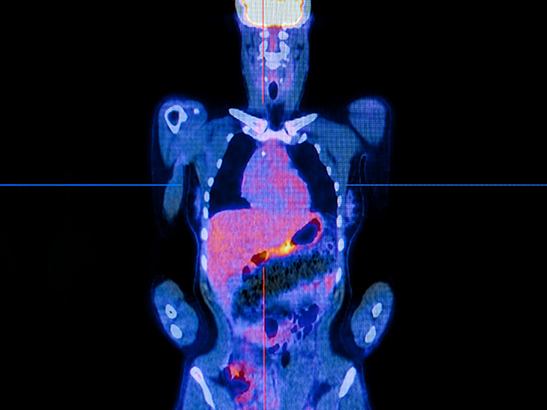
High-tech scan after chemotherapy could indicate whether head and neck cancer treatment is working
An advanced type of scan merging two imaging technologies could tell doctors whether treatment for head and neck cancer is working after just one cycle of chemotherapy.
-content.tmb-hbmobile.jpg?Culture=en&sfvrsn=fec93f9d_2)
Cancer patients’ optimism exceeds what phase I trials can deliver
Around half of cancer patients referred for phase I clinical trials thought their tumours would shrink, even after their clinician explained that the trial might not have the desired outcome, a new study reveals.
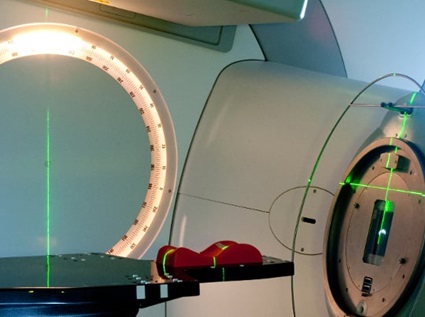
New triple therapy could boost treatment and prevent relapse in head and neck cancer
Combining a new targeted drug that blocks one of cancer’s escape routes could boost the effectiveness of combined chemo-radiotherapy for head and neck cancers and stop cells becoming resistant to treatment.

New ‘ecosystem’ test strongly predicts ovarian cancer survival
Assessing the cell ‘ecosystems’ at sites where ovarian cancer has spread round the body strongly predicts the chances of surviving from the disease, a new study reports.

Study shows blood vessel cells are helping breast cancers enter bloodstream and spread around body
Scientists have discovered that non-cancer cells that wrap around blood vessels — called ‘pericytes’ — are helping breast cancer cells enter the bloodstream and spread around the body through the production of a key molecule called endosialin.
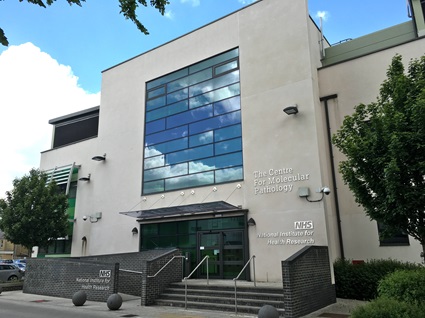
ICR and The Royal Marsden awarded £43 million for Biomedical Research Centre
The Institute of Cancer Research, London, and The Royal Marsden NHS Foundation Trust have successfully renewed their joint Biomedical Research Centre.
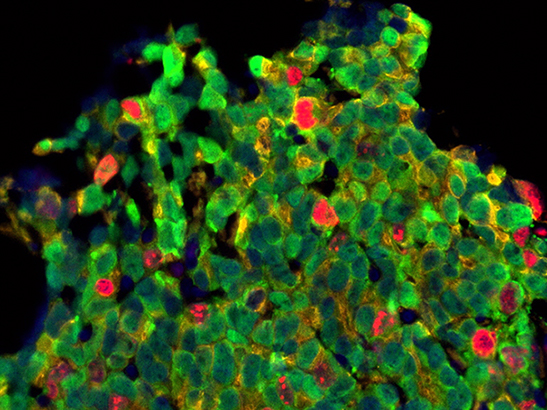
Counting cancer cells in blood could be key to telling whether prostate cancer treatment is working
A drop in the number of cancer cells detected in a patient’s blood could be the best indicator yet as to whether treatment for prostate cancer is working.
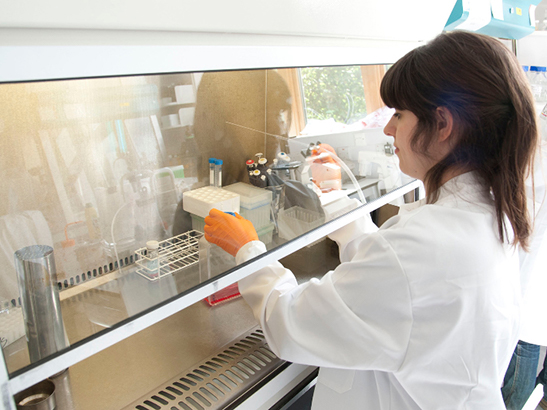
ICR secures new Wellcome Trust clinical PhDs
The Institute of Cancer Research, London, will host a new clinical PhD programme in cancer research, after being awarded funding from the Wellcome Trust.

ICR Chief Executive Paul Workman named one of London’s most influential people
Professor Paul Workman, Chief Executive of The Institute of Cancer Research, London, has been named in the Evening Standard’s Progress 1000 list of the most influential people in London.

Single-letter variation in DNA linked to longer bowel cancer survival
A single letter in a strand of DNA within tumours is linked to longer survival times for some patients treated for bowel cancer, a new study reveals.

ICR’s microscope appeal raises £50,000 for cutting-edge research
A new fundraising appeal by The Institute of Cancer Research, London, for research using a new type of high-tech microscope has raised an amazing £50,000.
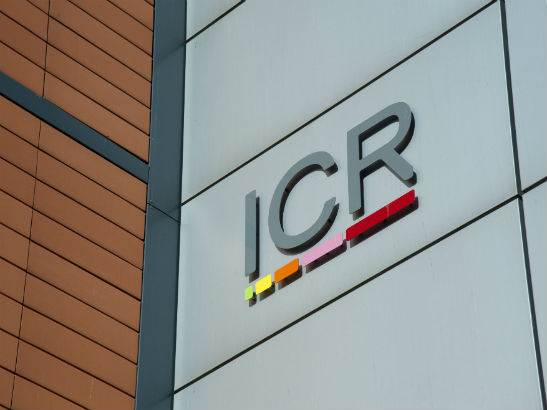
Statement about NICE decision on radium-223
The Institute of Cancer Research, London, has issued a statement in response to the decision by NICE to approve the use of radium-223 for treating hormone-relapsed prostate cancer with bone metastases if docetaxel chemotherapy isn’t a suitable treatment option.